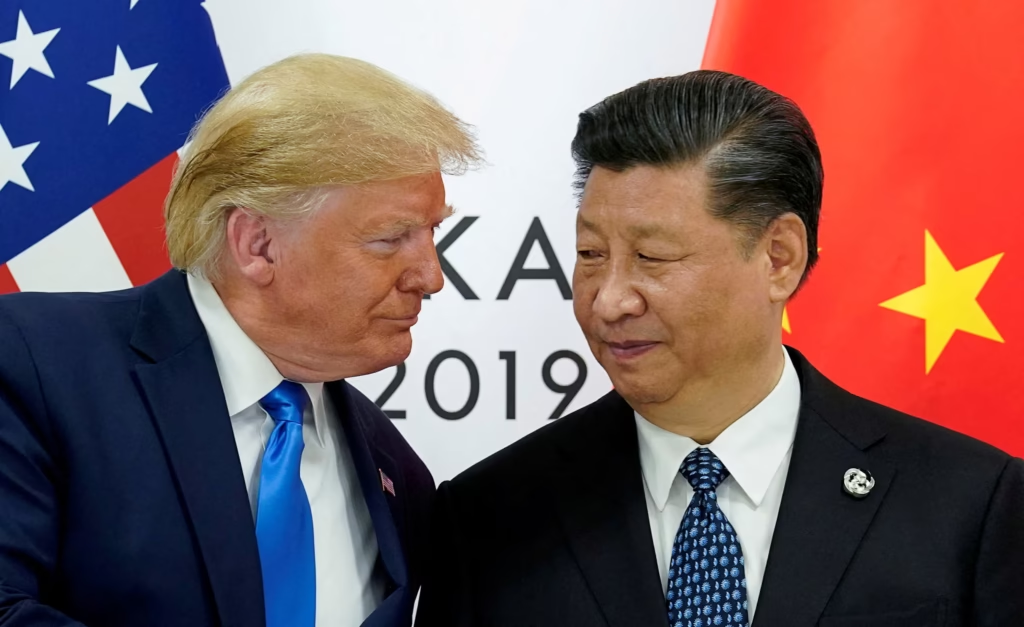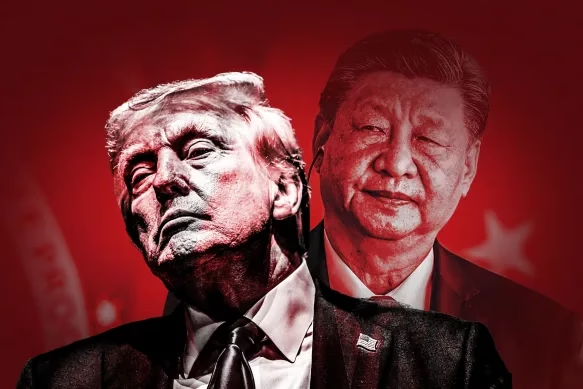
In a high-stakes phone conversation that could shape the next chapter of U.S.-China relations, Chinese President Xi Jinping urged U.S. President Donald Trump to avoid unilateral trade measures, warning that such steps could unravel the fragile progress both sides have made in negotiations. The Trump-Xi call on September 19, 2025, touched on tariffs, technology disputes, and the much-debated TikTok deal, highlighting both cooperation and deep mistrust between the world’s two largest economies.
A “Pragmatic and Constructive” Call
Chinese state media described the Trump-Xi call as “pragmatic, positive, and constructive.” The White House echoed this tone, with Trump calling the discussion “very productive.” Both leaders signaled an interest in stabilizing ties, but the underlying tension was clear.
Xi’s message was pointed: China sees unilateral U.S. tariffs and restrictions as dangerous and counterproductive. He warned that new trade actions taken outside of negotiated frameworks could “undermine progress” achieved through months of delicate talks.
Trump, meanwhile, highlighted what he called progress on the TikTok issue. He claimed an agreement was “essentially done,” though Beijing’s statements stopped short of confirming details, especially over who controls the app’s powerful recommendation algorithm.
Why China Is Pushing Back on Unilateral Moves
The Chinese president’s remarks reflect Beijing’s long-standing frustration with Washington’s habit of imposing tariffs or sanctions without consultation. From steel tariffs under Trump’s first term to recent restrictions on semiconductors and AI technology, China views these measures as unilateral attempts to contain its rise.
By calling on Trump to hold back, Xi framed the issue as one of trust. In Beijing’s view, true progress in trade relations can only come through mutual respect and negotiation, not through sudden penalties or export bans.
Analysts believe Xi’s strategy is to position China as the responsible partner while portraying the U.S. as unpredictable. This narrative resonates with many global investors and countries caught in the crossfire of U.S.-China tensions.
The TikTok Factor
One of the most closely watched points in the Trump-Xi call was the status of TikTok, the Chinese-owned app that Washington has targeted for national security reasons. Trump told reporters that a deal involving U.S. ownership had been approved.
However, China’s response was far less definitive. Officials welcomed progress but did not confirm any final agreement. The sticking points remain critical: who will control the TikTok algorithm, how data will be safeguarded, and what role U.S. regulators will play.
For Xi, the TikTok saga is more than a business issue—it is symbolic of how the U.S. treats Chinese companies. Allowing Washington to dictate ownership structures sets a precedent Beijing is reluctant to accept.
Global and Domestic Reactions
The Trump-Xi call on unilateral trade sparked immediate reactions from markets, businesses, and analysts.
- Tech companies are cautiously optimistic that the leaders are talking, but fear sudden tariff announcements could shake supply chains.
- Economists warn that if Trump ignores Xi’s appeal and imposes new restrictions, retaliatory tariffs could quickly follow, raising costs for consumers on both sides.
- Political analysts say the call was also about optics. With Trump facing a contentious election season, a strong stance against China plays well with his base. For Xi, projecting firmness while keeping channels open reinforces his leadership at home.
What’s at Stake
At the core of the Trump-Xi call is a question that has defined U.S.-China relations for years: Can the two powers compete without sliding into confrontation?
Unilateral trade moves risk:
- Escalating tariffs that would hurt U.S. exporters, especially in agriculture and manufacturing.
- Supply chain disruptions in technology, pharmaceuticals, and electronics.
- Global economic ripple effects, as other nations adjust to the instability between Washington and Beijing.
For businesses and investors, predictability matters. Repeated shocks from tariffs and restrictions could push more companies to shift operations away from the U.S. or China to safer third countries.
Looking Ahead: APEC Summit
The next major test will come at the APEC Summit in South Korea in late October, where Trump and Xi are expected to meet face-to-face. Many observers see that encounter as an opportunity to solidify progress—or a risk of open confrontation if either side escalates beforehand.
Until then, both leaders are likely to use public statements to shape global opinion. Trump may continue emphasizing toughness, while Xi will stress cooperation, all while warning the U.S. not to resort to unilateral trade moves.
Conclusion
The Trump-Xi call on unilateral trade underscored both the fragility and importance of the world’s most consequential economic relationship. Xi’s warning was clear: avoid unilateral steps that could derail months of progress. Trump’s optimism on TikTok showed potential for cooperation, but gaps remain wide.
As the world watches, one thing is certain: any new trade restrictions from Washington or countermeasures from Beijing will have consequences far beyond the U.S. and China. The next few weeks could determine whether the fragile progress survives—or collapses under the weight of unilateral actions.



